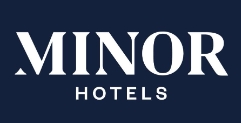
MINOR HOTELS, BETWEEN PROFOUND CHANGES AND PRESERVING A DNA FOCUSED ON THE EXPERIENTIAL
Brand overhaul, relations with owners, changes to the business model, constant focus on transformative experiences - Ian Di Tullio, the group's Chief Commercial Officer, talks about the changes that have taken place and are underway at Minor Hotels. |
 |
MINOR HOTELS, BETWEEN PROFOUND CHANGES AND PRESERVING A DNA FOCUSED ON THE EXPERIENTIAL
Brand overhaul, relations with owners, changes to the business model, constant focus on transformative experiences - Ian Di Tullio, the group's Chief Commercial Officer, talks about the changes that have taken place and are underway at Minor Hotels. |
Category: Worldwide - Industry economy
- Careers
- Interviews and portraits
- Hotel projects - Trends / Expert's advice - Career - Interviews
Interview made by Vanessa Guerrier-Buisine on 2025-02-07
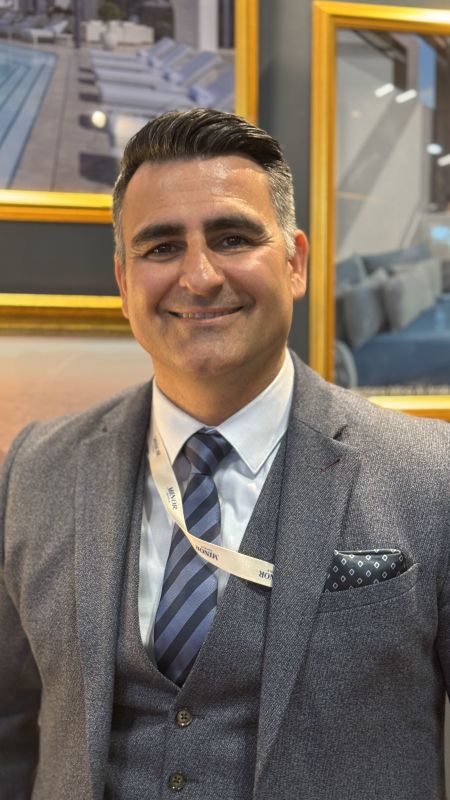 Ian Di Tullio, Chief Commercial Officer, Minor Hotels
Photo credit © Vanessa Guerrier-Buisine
We meet Ian Di Tullio, Chief Commercial Officer of Minor Hotels, whose warm smile and generosity contrast with his sharp technical skills. His expertise, forged within major brands, is accompanying the spectacular transformation of the group, which is multiplying its initiatives and projects. Minor Hotels is no longer just a hospitality player, but an architect of change, at the crossroads of digital innovation, international expansion and ultra-personalised experiences.
International expansion driven by solid acquisitions and partnerships
Minor Hotels' dynamism is embodied above all in its strategic expansion. After consolidating its footprint in Europe and America, supported by the acquisition of NH Hotels and Tivoli in 2018, the group is preparing to make a resounding entry into the Japanese market. From March 2025, a joint venture with Royal Holdings, called Royal Minor Hotels Co, Ltd, will be created. The aim? To roll out 21 hotels by 2035 under the Anantara, Avani and Tivoli brands. By joining forces with a solid local player, Minor Hotels is ensuring a controlled establishment, combining international know-how with expertise in the Japanese market.
This momentum is not limited to Asia. In London, Minor Hotels acquired the Corbin & King Group in 2022, a collection of upmarket restaurants that have become destinations in their own right, including The Wolseley, which has since given rise to the Wolseley Hospitality Group. This foray into the world of fine dining complements the group's hotel job, which is based on a holistic approach to hospitality.
At the same time, Minor Hotels is continuing to expand with the opening of several emblematic companies. This year,the Anantara Kafue River Tented Camp will mark the group's entry into the world of luxury camps in Zambia, offering immersion in the heart of unspoilt nature. In Paris, the NH Collection Paris Champs-Élysées will reopen in 2025 after a complete renovation, whilein Peru, nhow Lima will mark the brand's first steps in Latin America from April 2025.
Experience enhanced by sustained digital innovation
While Minor Hotels is expanding its geographical footprint, it is also revolutionising the customer experience through cutting-edge technological innovations. The group is preparing to launch a new integrated digital platform, bringing together all its brands under a single interface. The aim is clear: to streamline the customer journey and boost brand visibility, while aligning with the move towards a more direct B2C model.
Artificial intelligence is also at the heart of developments, with projects aimed at personalising interactions and enriching the user experience. At the same time, engaging initiatives such as ‘Avani Tribes’, an online quiz accessible via a QR Code or on TikTok and Instagram, aim to captivate younger customers by offering them tailor-made itineraries based on their travel profile.
Unique experiences at the heart of each project
In addition to new addresses and digital innovations, Minor Hotels is shaping a hospitality experience in which every experience becomes an unforgettable memory. The group's commitment to experiential luxury is illustrated through unique collaborations, such as Anantara's initiative with an American NGO dedicated to preserving the oceans, which will be unveiled shortly. Anantara brand hotels are becoming platforms for awareness-raising and action, where guests can get involved in concrete ways.
The culinary side of the Anantara brand is not left out, with some extraordinary experiences: a dinner suspended in a capsule 52 metres above the ground at the Canopy of the Anantara Golden Triangle, a jungle foraging expedition followed by a cooking class at the Anantara Ubud Bali, or an exclusive picnic on the banks of the Zambezi, accessible after a helicopter flight over the Victoria Falls for guests staying at the Royal Livingstone Hotel Zambia.
This quest for unique experiences also extends to travel. The Bohème river cruise, from Luang Prabang to Xayaboury, offers an immersive journey punctuated by cultural and gastronomic discoveries of Laos. In Vietnam, The Vietage is inaugurating a second line linking Nha Trang to Danang, offering a rail journey combining refinement and ‘slow-travel’.
With a clear vision and meticulous execution, the group is shaping the luxury of tomorrow, a luxury rooted in emotion and experience.
In this interview with Journal des Palaces, Ian Di Tullio, Chief Commercial Officer of Minor Hotels, talks about the profound changes taking place in the group and its brands, the evolution of its business model, and the growth prospects for Minor Hotels.
Journal des Palaces: Minor Hotels has undergone a major brand overhaul. Can you tell us more about this?
Ian Di Tullio: Today, we systematically promote Minor Hotels alongside our eight hotel brands. We have renamed all our business brands, since B2B has come under the Minor Hotels umbrella. In particular, NH Hotel Group has disappeared in favour of Minor Hotels Europe & Americas, under the Minor Hotels umbrella. The B2B transition is now complete: all relations with agencies and intermediaries go through Minor Hotels. All our brands are aligned, including our employer brand.
We've just redesigned the Minor Hotels logo, which is now dark blue, a much more elegant and luxurious choice. All our content now incorporates brand markers.
You've also reworked some brand logos, like Anantara. What values did you want to convey through this logo change?
Indeed, we have also reworked our brand logos, starting with Anantara, whose new version has been refined to reflect the brand's values, which are a little ‘quiet luxury’. It's a brand rooted in the experiential and the long term, with a deeply authentic sensibility and a great closeness to travellers.
How have you brought each brand under the Minor Hotels umbrella?
We have rethought our portfolio of brands and divided them into three levels: luxury, premium and select. We decided to enrich our portfolio with four new brands: two positioned in the soft-luxury segment, a lifestyle brand and a midscale brand.
A new generation of brands has emerged on the hotel scene, particularly lifestyle brands. This is due to a transition of assets to a second or even third generation. This new generation understands the efficiency of the major groups, particularly in terms of distribution. There is also a question of the ability to access knowledge and ongoing training.
Brands bring with them all the support of the employer brand, training, the ability to transfer staff from one hotel to another, to upgrade their skills.
For us, who want to become lighter and lighter on the assets side, it's very important to look for management contracts and, above all, to look for independents to help us grow, before we look for funding, etc. Independents are potentially more attractive in the short term than hotels. In the short term, independents are potentially more committed to more European and more American brands.
Does the fact that you now own 60% of your portfolio facilitate this dialogue with independent hoteliers?
It gives us a great deal of credibility with owners. Even current owners who have been affiliated to major brands for decades regret the lack of commitment from franchisors. Owners take all the risks. We experience the day-to-day reality of running a hotel. At least once a quarter, we make a detailed diagnosis of each of our hotels.
Our chairman, our president and I meet with owners, have these discussions, and show that we know the complexities of the hospitality industry inside out. In fact, we are still 60% owners, although we will eventually set up a Real Estate Investment Trust (REIT).
Could you tell us more about the creation of this Real Estate Investment Trust?
In fact, this trust will bring together a number of our assets, which will have an X value, say 1 billion or more. We will retain a majority stake in the trust to maintain control. We are looking for investors to pay down our debt linked to the acquisition of NH Hotels and to free up resources for new acquisitions as well as to put in place signing incentives. So this REIT will accelerate our ability to transition into lighter assets.
We are not adopting a pure asset-light strategy, certainly not in the medium term, because our strength lies in being able to assert our position as owners. And as long as we are able to demonstrate that financially we can ensure asset rotation on this trust that performs as well as the competitors, and that at the same time our management of our brands really generates added value for all the owners, including ourselves, this will work very well.
We are building momentum with potential investors in 2025, and the timeframe for the launch of the trust is early 2026. We wanted to make sure we had this master brand and hotel brand structure. The difference for us is that our hotel brands will always be the main assets of the company, and Minor Hotels will be the guarantor. It's an umbrella brand, but we want the gateway to remain our brands, which are so powerful, like NH or Anantara.
As we build up our loyalty programme with Global Hotel Alliance, as we nurture our customer base, and as internet users start to use our direct Minor Hotels site, the mass will become so strong, so loyal, that customers will switch to multi-branding. We want this switchover to happen naturally. We're not going to spend 200 million to create a master brand. We have brands on which we are going to capitalise, and which will enable us to build up Minor's credibility.
What are the growth prospects for Minor Hotels?
Within 2 years, we are targeting a portfolio of 800 hotels, and within 5 years, 1,000 hotels. We are going to rebalance the portfolio by including some asset light. We will reach a 50-50 ratio, even though we will maintain the majority share of the trust, which will enable us to increase the share of asset light, but retain real control over the network. We really don't want to lose this culture of acting like owners.
We are also going to explore the franchising model for certain brand segments. The key is always to choose the right partners. When you surround yourself with the right franchisors, they can be the best ambassadors, and their success creates a real snowball effect. Our priority is not to cannibalise markets where we are already well established, but rather to conquer those where we are still absent. But if we want to grow, we also need to focus on markets where we already have good assets, but which we can complement with franchised investment.
As part of your talent retention strategy, how are you meeting the challenge of keeping talent such as GMs within your Group?
Ian di Tullio: Our network has expanded considerably, with a strong footprint in both Asia and Europe. This is a huge asset, especially as we are seeing a trend among European professionals to migrate to Asia, particularly to leisure destinations.
Luxury expertise has always been very strong in Europe, so we're importing this expertise to Asia, and we're trying to deploy our strengths in Asia to the Middle East and European markets. There are still visa complexities, which unfortunately remain an obstacle to mobility, not just for managing directors, but even for reception managers. Yet there is an enormous wealth of service in Asia, which is very complementary to the European service. Exporting this skill to Europe could enrich the level of luxury in Europe, by preserving and bringing a dimension of affinity to luxury.
There is still a real culture of hospitality in Asia today, and it's still a very powerful social lift. Employees continue to enter the hospitality industry, starting out in F&B and working their way up to become hotel directors or managers, before becoming GMs.
This is a really critical issue for us, which is one of the reasons why we have set up a hotel school in Asia, in collaboration with Les Roches. Our first class graduated recently. The classes can accommodate up to 100 people per year. We founded this training institute to capitalise on this culture of hospitality in Thailand. Students from all over the world are trained here before being deployed internationally. One of our aims is also to raise the overall standard of the hospitality industry.
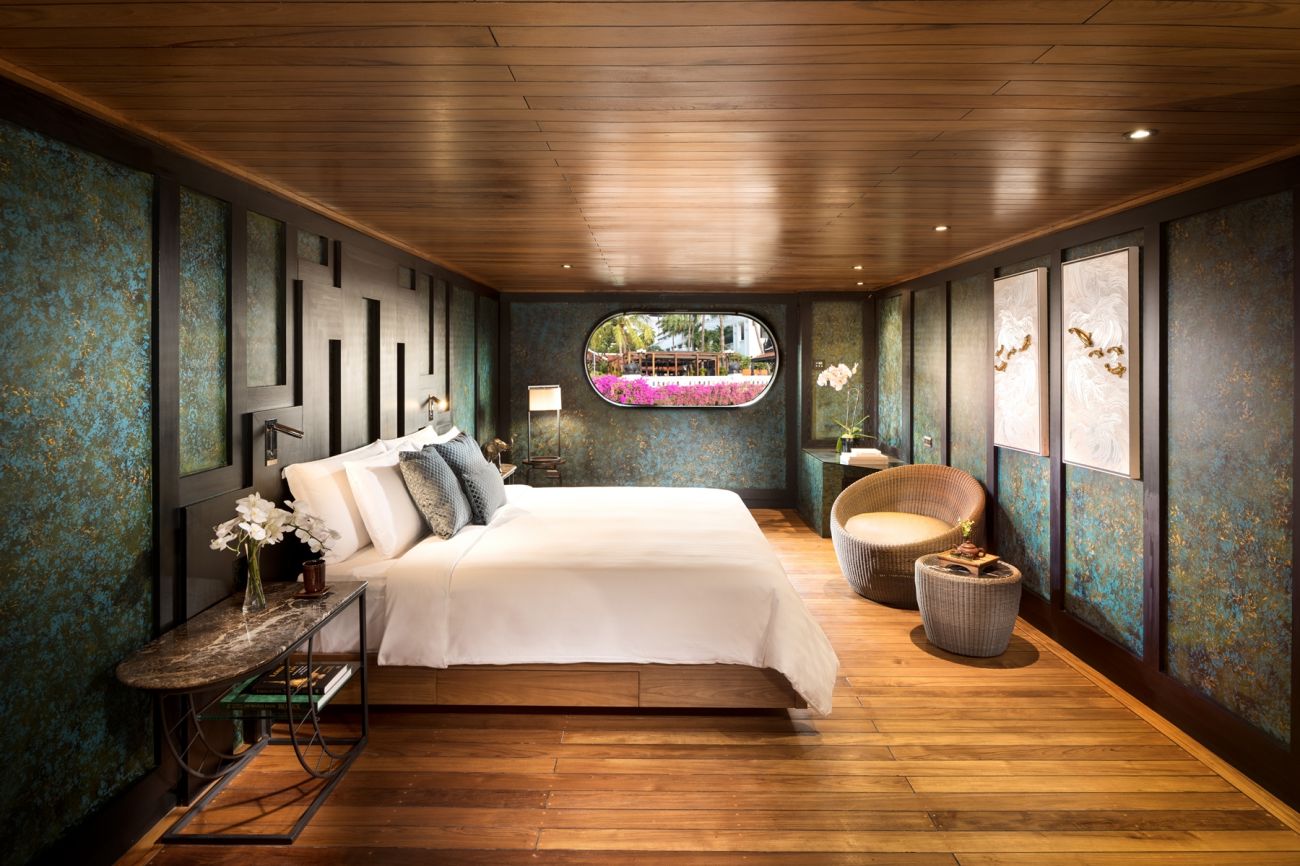 Photo credit © Minor Hotels
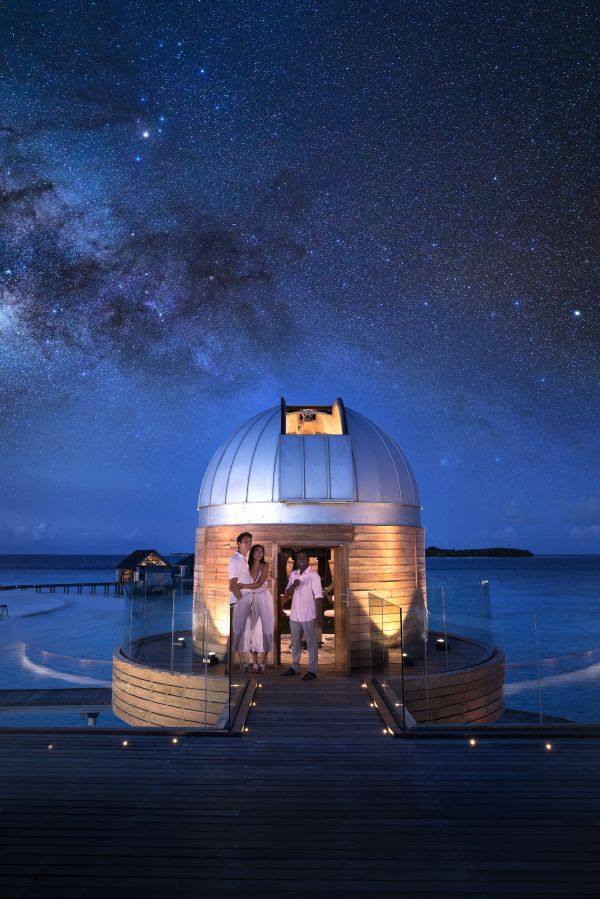 Anantara Kihavah Maldives
Photo credit © Minor Hotels
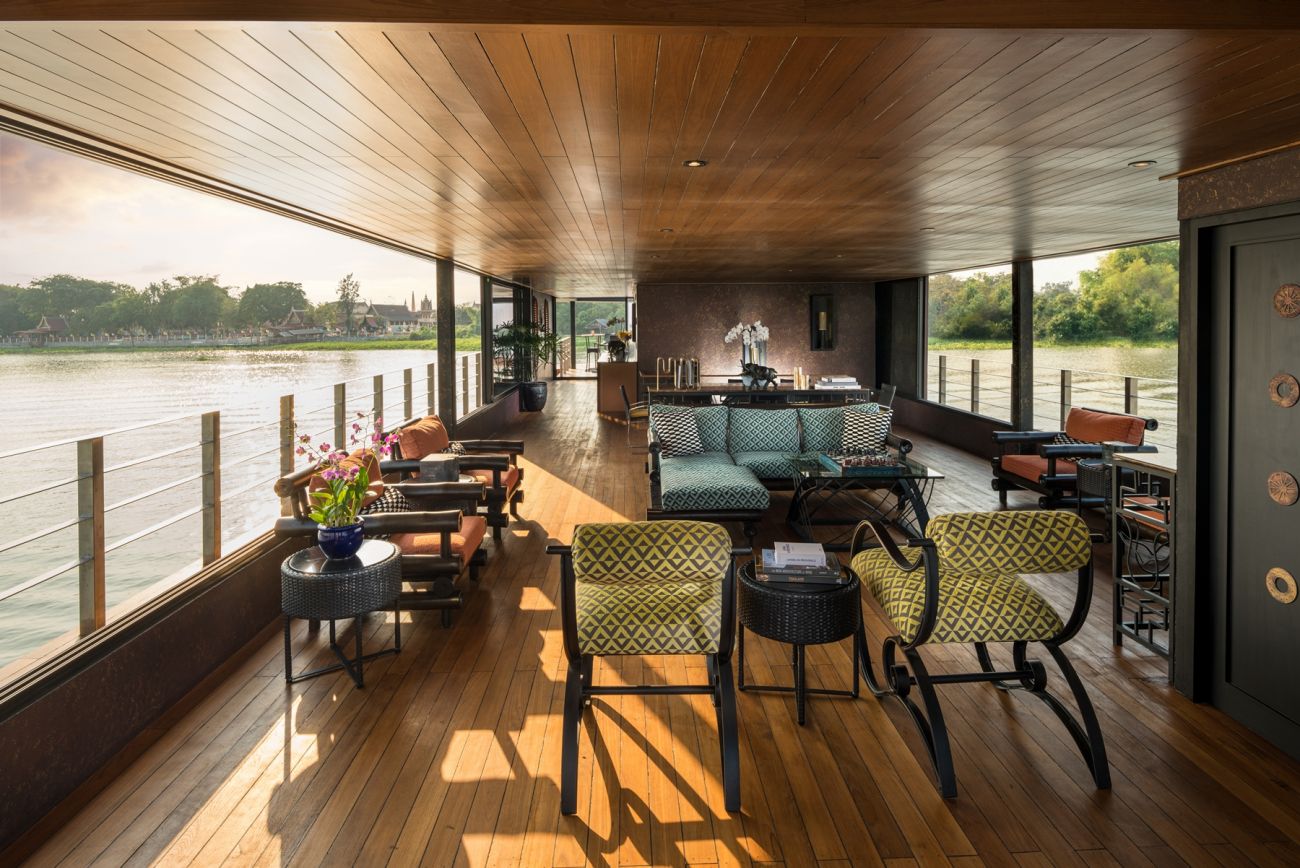 Photo credit © Minor Hotels
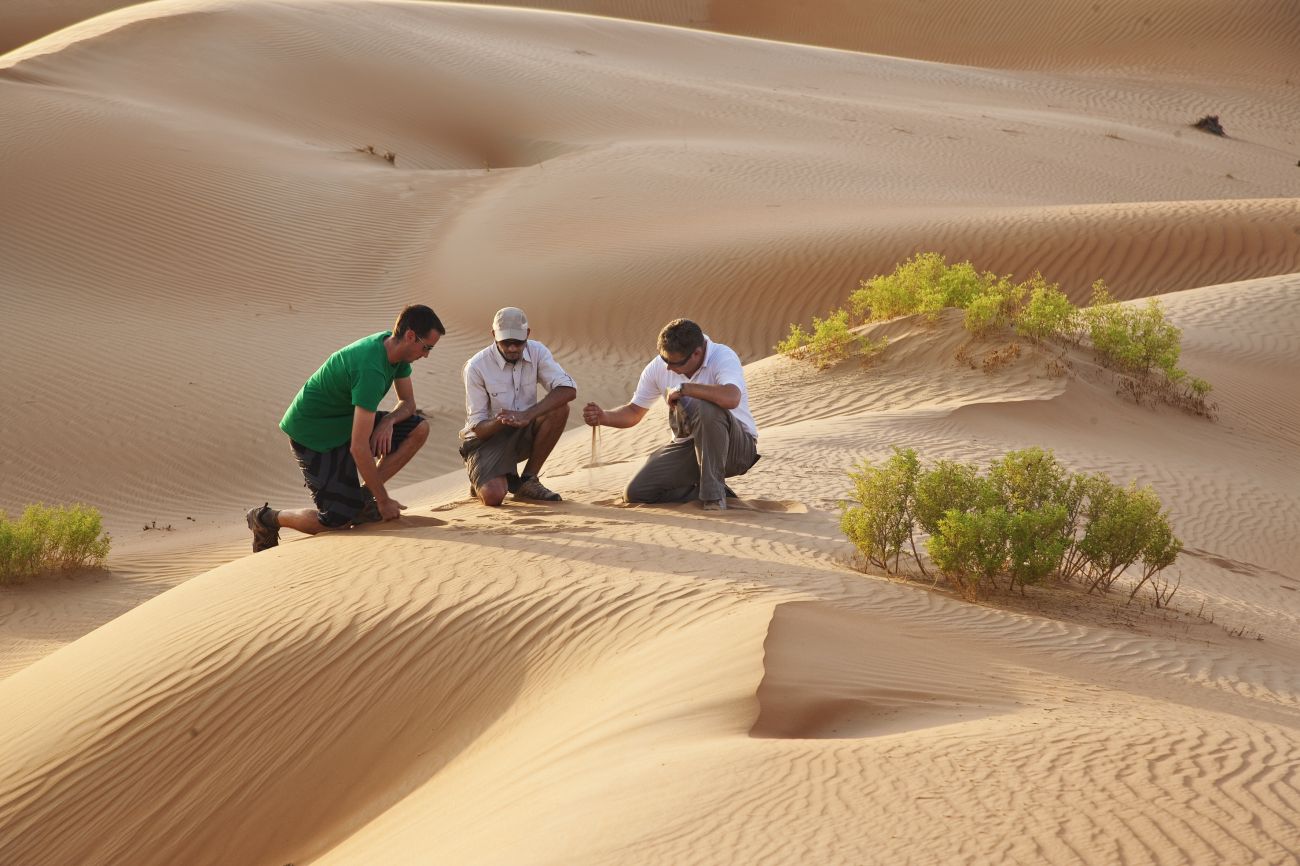 Photo credit © Minor Hotels
|
|





